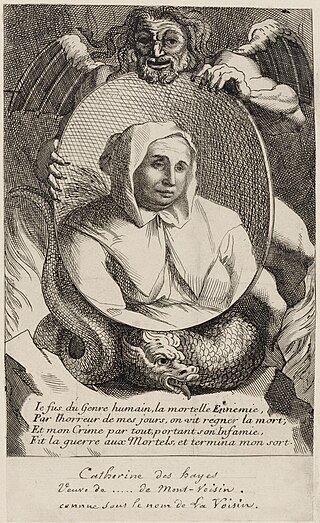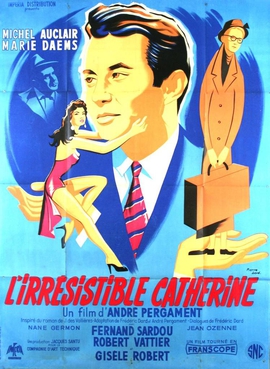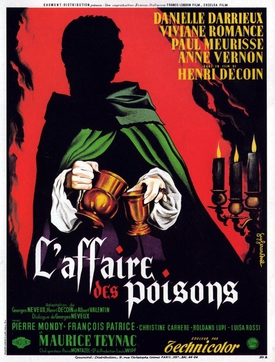Related Research Articles

Sarah Bernhardt was a French stage actress who starred in some of the more popular French plays of the late 19th and early 20th centuries, including La Dame aux Camélias by Alexandre Dumas fils, Ruy Blas by Victor Hugo, Fédora and La Tosca by Victorien Sardou, and L'Aiglon by Edmond Rostand. She also played male roles, including Shakespeare's Hamlet. Rostand called her "the queen of the pose and the princess of the gesture", and Hugo praised her "golden voice". She made several theatrical tours around the world, and she was one of the early prominent actresses to make sound recordings and to act in motion pictures.

Symbolism was a late 19th-century art movement of French and Belgian origin in poetry and other arts seeking to represent absolute truths symbolically through language and metaphorical images, mainly as a reaction against naturalism and realism.

La Tosca is a five-act drama by the 19th-century French playwright Victorien Sardou. It was first performed on 24 November 1887 at the Théâtre de la Porte Saint-Martin in Paris, with Sarah Bernhardt in the title role. Despite negative reviews from the Paris critics at the opening night, it became one of Sardou's most successful plays and was toured by Bernhardt throughout the world in the years following its premiere. The play itself had dropped from the standard theatrical repertoire by the mid-1920s, but its operatic adaptation, Giacomo Puccini's Tosca, has achieved enduring popularity. There have been several other adaptations of the play including two for the Japanese theatre and an English burlesque, Tra-La-La Tosca as well as several film versions.

Victorien Sardou was a French dramatist. He is best remembered today for his development, along with Eugène Scribe, of the well-made play. He also wrote several plays that were made into popular 19th-century operas such as La Tosca (1887) on which Giacomo Puccini's opera Tosca (1900) is based, and Fédora (1882) and Madame Sans-Gêne (1893) that provided the subjects for the lyrical dramas Fedora (1898) and Madame Sans-Gêne (1915) by Umberto Giordano. His play Gismonda, from 1894, was also adapted into an opera of the same name by Henry Février.

Salome is a one-act tragedy by Oscar Wilde. The original version of the play was first published in French in 1893; an English translation was published a year later. The play depicts the attempted seduction of Jokanaan by Salome, stepdaughter of Herod Antipas; her dance of the seven veils; the execution of Jokanaan at Salome's instigation; and her death on Herod's orders.

The Affair of the Poisons was a major murder scandal in France during the reign of King Louis XIV. Between 1677 and 1682, a number of prominent members of the aristocracy were implicated and sentenced on charges of poisoning and witchcraft. The scandal reached into the inner circle of the king. It led to the execution of 36 people.

19th-century French literature concerns the developments in French literature during a dynamic period in French history that saw the rise of Democracy and the fitful end of Monarchy and Empire. The period covered spans the following political regimes: Napoleon Bonaparte's Consulate (1799–1804) and Empire (1804–1814), the Restoration under Louis XVIII and Charles X (1814–1830), the July Monarchy under Louis Philippe d'Orléans (1830–1848), the Second Republic (1848–1852), the Second Empire under Napoleon III (1852–1871), and the first decades of the Third Republic (1871–1940).

Nineteenth-century theatre describes a wide range of movements in the theatrical culture of Europe and the United States in the 19th century. In the West, they include Romanticism, melodrama, the well-made plays of Scribe and Sardou, the farces of Feydeau, the problem plays of Naturalism and Realism, Wagner's operatic Gesamtkunstwerk, Gilbert and Sullivan's plays and operas, Wilde's drawing-room comedies, Symbolism, and proto-Expressionism in the late works of August Strindberg and Henrik Ibsen.

The Théâtre de la Porte Saint-Martin is a venerable theatre and opera house at 18, Boulevard Saint-Martin in the 10th arrondissement of Paris.

Patrie is a 1946 French historical drama film directed by Louis Daquin and starring Pierre Blanchar, Maria Mauban and Jean Desailly. It was entered into the 1946 Cannes Film Festival. Like the 1917 silent film of the same title it is based on the 1869 play by Victorien Sardou. It was shot at the Epinay Studios in Paris. The film's sets were designed by the art director René Moulaert.
Gismonda is a Greek-set melodrama in four acts by Victorien Sardou that premiered on October 31, 1894 at the Théâtre de la Renaissance. In 1918, the play was adapted for the now lost film Love's Conquest. In 1918/1919, it was adapted into the opera Gismonda by Henry Février.

Fédora is a play by the French author Victorien Sardou. It opened at the Théâtre du Vaudeville in Paris on 11 December 1882, and ran for 135 performances. The first production starred Sarah Bernhardt. She wore a soft felt hat in that role which was soon a popular fashion for women; the hat became known as a fedora.

Thomas Overskou was a Danish actor, playwright and theater historian and a titular professor in 1852. His plays are preserved in the Dramatic Collection of the Royal Danish Library.

Pamela is a 1945 French historical drama film directed by Pierre de Hérain and starring Fernand Gravey, Renée Saint-Cyr and Georges Marchal.
Tosca is a 1956 Italian musical melodrama film directed by Carmine Gallone and starring Franca Duval, Afro Poli and Franco Corelli. It is based on the 1900 opera Tosca by Giacomo Puccini, which was adapted from the 1887 play by Victorien Sardou. It was made at Cinecittà in Rome.

Anaïs Fargueil was a 19th-century French actress.
Marcella is a 1937 Italian drama film directed by Guido Brignone and starring Emma Gramatica, Caterina Boratto and Antonio Centa. It is based on a play by Victorien Sardou.

Women's Prison is a 1958 French crime film directed by Maurice Cloche and starring Danièle Delorme, Jacques Duby and Vega Vinci. It is based on the 1930 novel of the same title by Francis Carco previously made into the 1938 French film Women's Prison and the 1947 Swedish film Two Women.

Irresistible Catherine is a 1957 French comedy film directed by André Pergament and starring Michel Auclair, Marie Daëms and Fernand Sardou.

The Affair of the Poisons is a 1955 French-Italian historical drama film directed by Henri Decoin and starring Danielle Darrieux, Viviane Romance and Paul Meurisse. The film is adapted from the 1907 play of the same title by Victorien Sardou. It was shot in Technicolor at the Boulogne Studios in Paris. The film's sets were designed by the art director Jean d'Eaubonne. The film is set against the backdrop of the real Affair of the Poisons in seventeenth century France, and demonstrates a darker tone than many more nostalgic depictions of the past.